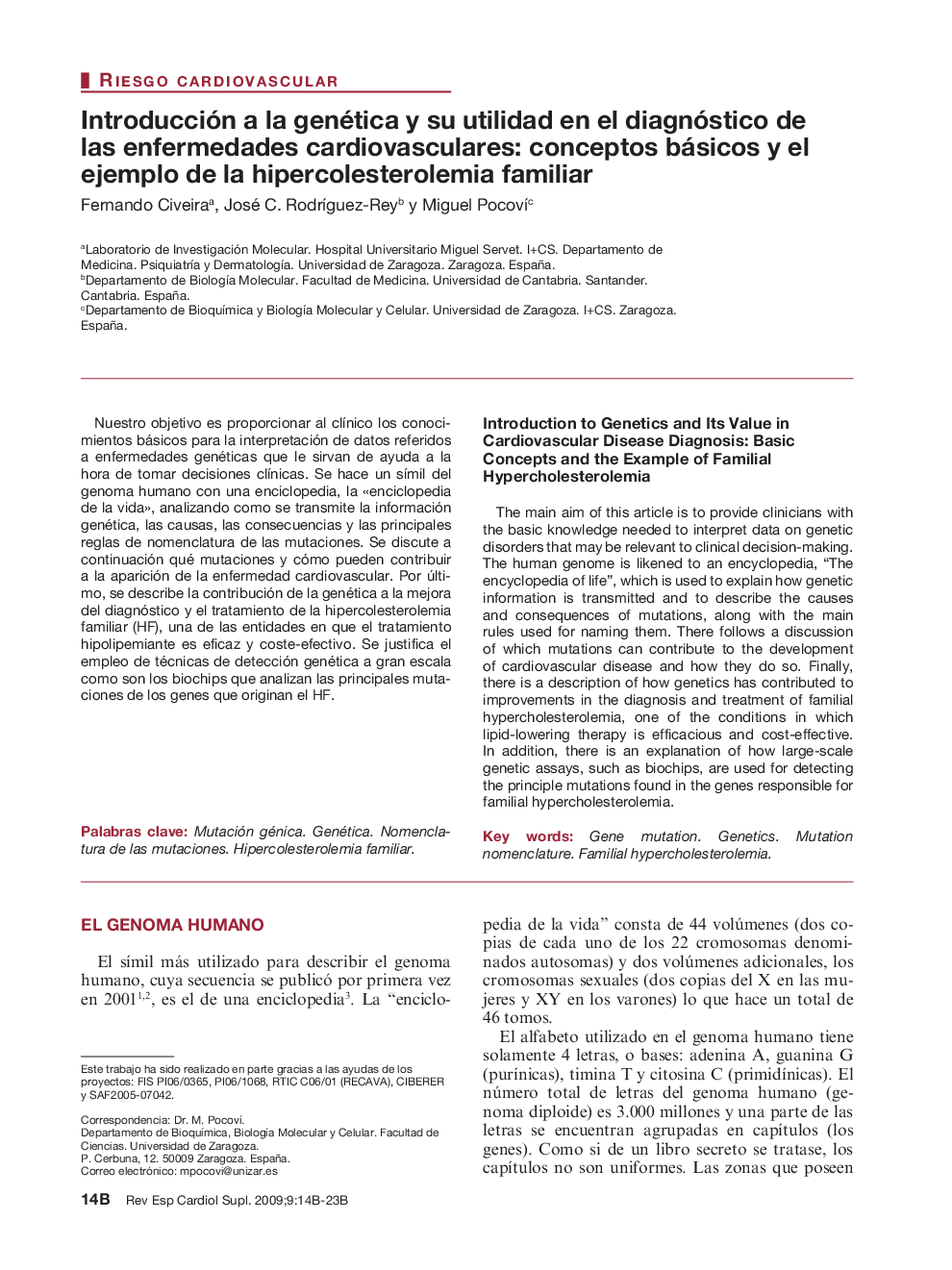| Article ID | Journal | Published Year | Pages | File Type |
|---|---|---|---|---|
| 3019617 | Revista Española de Cardiología Suplementos | 2009 | 10 Pages |
Abstract
The main aim of this article is to provide clinicians with the basic knowledge needed to interpret data on genetic disorders that may be relevant to clinical decision-making. The human genome is likened to an encyclopedia, “The encyclopedia of life”, which is used to explain how genetic information is transmitted and to describe the causes and consequences of mutations, along with the main rules used for naming them. There follows a discussion of which mutations can contribute to the development of cardiovascular disease and how they do so. Finally, there is a description of how genetics has contributed to improvements in the diagnosis and treatment of familial hypercholesterolemia, one of the conditions in which lipid-lowering therapy is efficacious and cost-effective. In addition, there is an explanation of how large-scale genetic assays, such as biochips, are used for detecting the principle mutations found in the genes responsible for familial hypercholesterolemia.
Keywords
Related Topics
Health Sciences
Medicine and Dentistry
Cardiology and Cardiovascular Medicine
Authors
Fernando Civeira, José C. RodrÃguez-Rey, Miguel PocovÃ,
